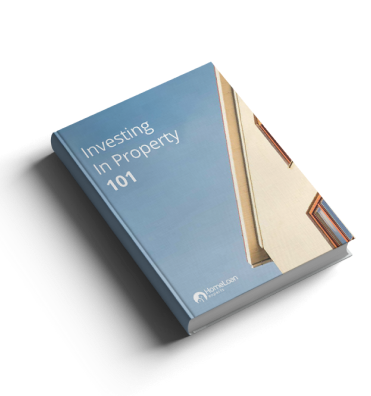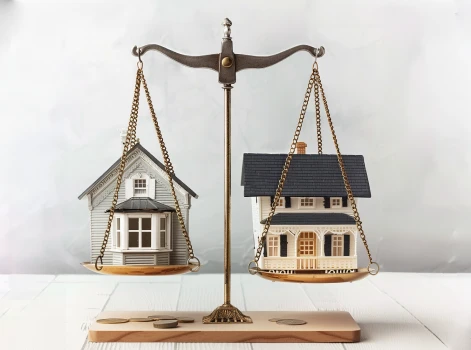Investing in property can secure your financial future if done well, which is why you need proper planning, not impulsive action. It’s important to have a clear understanding of your short-term and long-term goals.
Is It Worth Buying An Investment Property?
There are several factors to consider. Let’s take a look at some of the benefits and pitfalls of buying an investment property.
5 Pros Of Investing In Property
Stable Investment
Property markets have proven to be less volatile than others. It may take longer to sell a property than other assets but regardless of the ups and downs of the market, you have a good chance to benefit from capital growth if you buy at a good price.
Positive Cash Flow
Most investors purchase an investment property to rent it out and generate passive income. This is called rental property investment. If the rental income covers your monthly mortgage repayments, in effect, you’re getting someone else to buy the property for you. Not only does the tenant help you pay off your mortgage you also gain positive cash flow.
With the right plan and enough properties, you can gain wealth over time and fund your lifestyle.
Tax Benefits
One big advantage of owning an investment property is the potential tax benefits. If your interest and ownership costs add up to more than your rental income, you have a net loss, which is known as negative gearing. But this loss can help you save on tax.
For example, say you earn $80,000 in taxable income on your job and own a rental property. This property collects $20,000 a year in rent but costs $30,000 a year in interest and running costs. The $10,000 annual loss on the property reduces your taxable income from $80,000 to $70,000. Your marginal tax rate would be 32.5% so that deduction lowers your tax bill by $3250. This leaves a net loss of just $6750, instead of $10,000.
In some cases, you can also claim tax deductions for depreciating assets, maintenance charges, pest control costs and other expenses.
Physical Asset
Unlike markets that deal with shares and bonds, property lets you invest in something you can see and touch. You gain the advantage of an asset that you can live in or rent out to earn passive income.
Build An Investment Portfolio
Properties are usually long-term investments, which can increase in value and improve your cash flow. You can even use the cash to invest in other properties and expand your property investment portfolio.
High-income professionals like doctors are usually interested in building a property portfolio. Since they’re considered a low-risk borrower, they have a better chance at qualifying for an investment loan even with an LMI waiver. If you’re just starting out and have a low income, It may still be possible to secure a loan for an entry-level investment.
Once you’ve built equity as the property value appreciates, you can use it to invest in other properties. With a property investment portfolio, you have the potential to produce capital growth and rental yield to generate robust long-term returns.
Property Investment Guide 101
Learn the ins & outs of investing in properties from an experienced property investor and founder of Home Loan Experts, Otto Dargan.

5 Cons Of Investing In Property
The Disadvantages Of Negative Gearing
Investing in property doesn’t always lead to positive cash flow. And a negative gearing strategy tends to work only if you have a stable job with an income that’s increasing over time. If your situation changes so that you need more cash and you’re not able to increase the rent, you may be forced to sell your property before its value has increased much.
Read more about the pros and cons of negative gearing.
Low Liquidity
Unlike shares and some other assets, you can’t expect to pull your money out of property investments any time you want. Depending on the area, it could take months to sell your property. This disadvantage can put you in a difficult situation if you need cash in an emergency.
You can refinance to release equity but the process takes time, which varies depending on your lender and your application’s complexity.
Not All Properties Increase in Value
Most investors look to benefit from capital growth but they don’t always get it. Your investment property may decline in value over time or due to market fluctuations. You could even end up owing more than the property is worth. This is known as negative equity.
High Entry Costs
Saving a deposit to enter the property market can be challenging – and that is hardly the only cost. Other fees involved include stamp duty, legal charges, real-estate agent’s fees and more.
Difficult Tenants – Or None At All
You could end up with a problematic tenant. You can’t predict how tenants will behave and difficult ones can add to maintenance costs. It’s best to have additional funds available for unexpected incidents.
On the other hand, you could end up without tenants and have to cover the cost of the property yourself for a period of time.
Are You Looking To Invest In Property?
Despite the cons, property is usually more stable than other investments. Use our investment property calculator to get an idea about the cash flow position of your potential investment property.
Once you have a clear idea, Home Loan Experts’ mortgage brokers can help you qualify for an investment loan. Speak to our mortgage brokers by calling 1300 889 743 or fill in our free assessment form.
